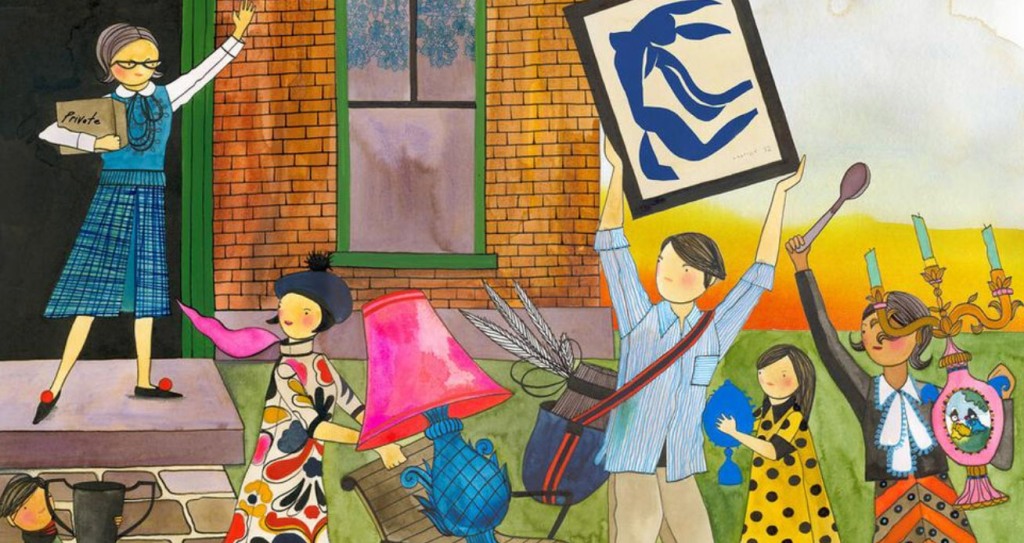
A few months ago, the New York Times published an articled titled “How to Discover the Life-Affirming Comforts of ‘Death Cleaning’” by Rhonda Kaysen. The article uses the book The Gentle Art of Swedish Death Cleaning by Margareta Magnusson as a jumping off point to talk about downsizing and decluttering while we are still able to do it for ourselves. The book by Magnusson is described as “a charming, practical, and unsentimental approach to putting a home in order while reflecting on the tiny joys that make up a long life.”
When the article was published the Times asked for comments and then included many of the hundreds of responses in the Opinion pages a couple of months later. Some of these responses were “charming, practical, and unsentimental” while others were emotional and touching and some even heartbreaking.
While the responses from readers ran the gamut, many of the people who commented fell into the categories of downsizers we have discussed in our blog: the “keepers” who want to preserve special things as well as memories, and will linger over the process and the “throwers” who relish clearing out and will empty a house quickly.
But the most moving responses were from people who had had a profound reaction to sorting through all the stuff that belonged to loved ones and shared their stories in the comment section.
One commenter found the word “clutter” to be distasteful. “The word captures none of the wistful sadness of the triage required to downsize one’s accumulated past life, even while looking forward to the next phase.”
One person said that she had somehow become the keeper of the flame for the whole family. “Cleaning out the house has made me decide to give up that role and eliminate what I do not want or need.”
Another man was sorting through his parents’ home after his mother’s death and found, among much stuff, five copies of Mickey Rooney’s autobiography. After cleaning up somewhat and selling the house, he said, “I took the only things that truly mattered. My memories, my dad, his dogs and one copy of Mickey Rooney’s autobiography.”
After a man and his wife cleaned out his in-laws’ home of 50 years, he said it was the hardest task either of them had ever done, “taking a physical, emotional and to some extent even spiritual toll.” From that experience, he felt the best thing we can do “is to determine what’s truly important and get rid of the rest.”
One man writes that he never had a good relationship with his mother and, as one of her caregivers, was able to sort through some of her private papers while she was dying. He found teachers’ reports and artwork of his, clearly things that she appreciated and valued. He says, “By the time she died of dementia in her home, I had received the grace to grieve her loss in a way I thought unimaginable. Disposing of her physical belongings gave me the gift of realizing a love she had for me I never knew existed.”
One person’s response reminded me of what a friend told me as I was writing our book Moving On. She said that after her father-in-law passed away, her mother-in-law cleaned out her house of all the accumulated stuff, saying she did it as a gift to her children. The commenter said, “My goal is for my kids, instead of saying ‘what are going to do with all this stuff?’ will say ‘I wonder what happened to…’”
That’s worthy of adding to my list of goals for emptying my home of clutter: For my children to say, “I wonder what happened to…”
≈Linda Hetzer is an editor and author of books on home design, crafts, and food, and coauthor of Moving On: A Practical Guide to Downsizing the Family Home.
Filed under: Uncategorized | Tagged: emptying the house, getting rid of stuff, gratitude, share your stories |



I’m sad about the goal of having one’s kids say “I wonder what happened to…”
My mom seldom kept sentimental things, and I wish she had. Or had at least asked me if I wanted things like my old school projects, medical records, etc. before she threw them away.
There’s a lot to be said for “clearing the clutter,” but there are limits. People today seem to glorify it as an unmitigated good. It’s not.
So true! Everything should be done in moderation and with consideration for all the people involved. Not everyone is on the same page with decluttering and everyone’s feelings should be respected in the process.